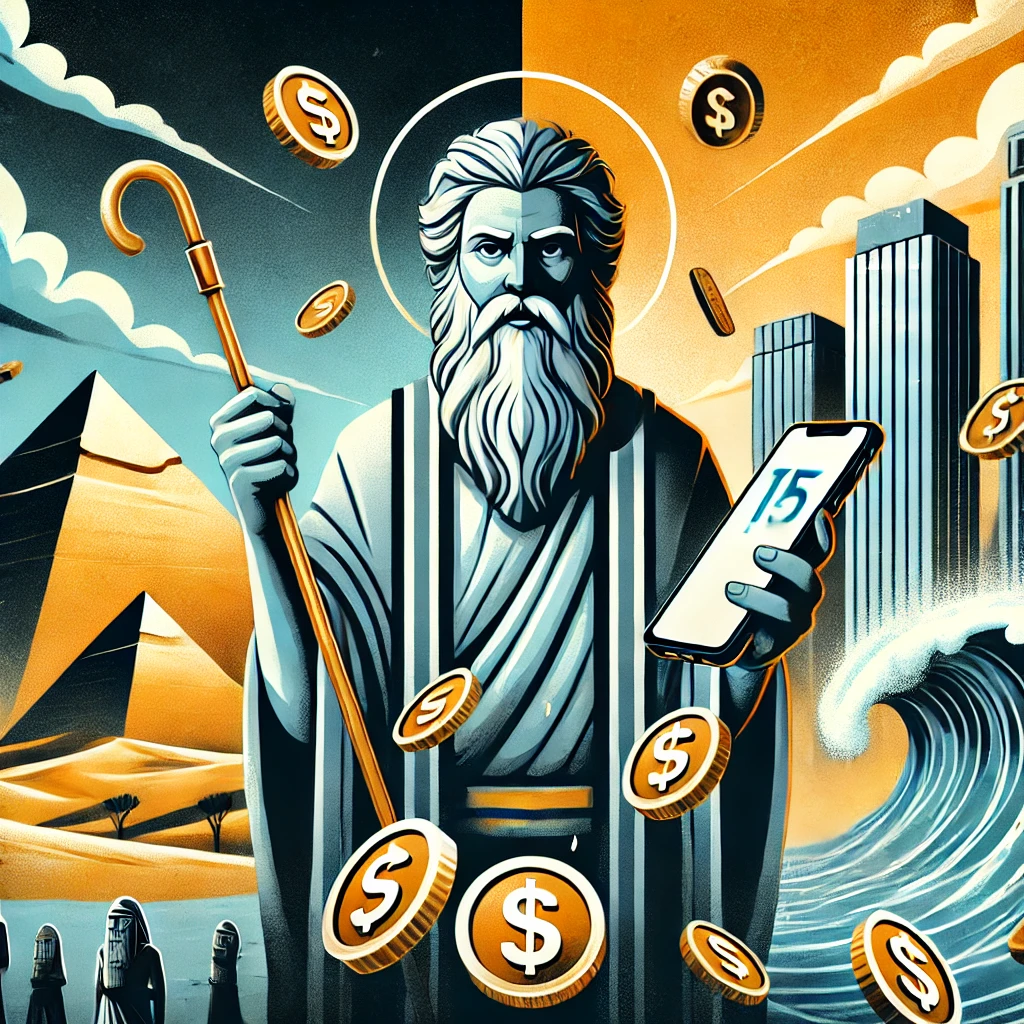Test your knowledge of the financial principles from the Exodus story!
- What economic condition did the Israelites experience in Egypt? a) Prosperity b) Slavery c) Free market d) Socialism
- God’s promise to bring the Israelites to “a land flowing with milk and honey” represents: a) Literal dairy and bee farms b) Economic oppression c) Economic prosperity and abundance d) A simple agrarian lifestyle
- The manna economy teaches us about: a) Modern banking systems b) Trust in daily provision and resource management c) The importance of hoarding resources d) The value of gold as currency
- True or False: The Sabbath principle has no relevance to modern economic systems.
- Which company demonstrated the principle of rest leading to increased productivity? a) Amazon b) Microsoft Japan c) Apple d) Google
- The Ten Commandments provide a framework for: a) Tax evasion b) Maximizing profits at any cost c) Ethical wealth acquisition d) Government regulation of businesses
- The story of the golden calf warns against: a) Investing in precious metals b) Economic idolatry c) International trade d) Charitable giving
- Greyston Bakery’s “open hiring” policy is an example of: a) Poor business practices b) Community-focused economics c) Economic idolatry d) Unethical wealth acquisition
- Moses’ detailed accounting of the Tabernacle materials demonstrates the importance of: a) Hoarding wealth b) Secrecy in financial matters c) Stewardship and accountability d) Avoiding financial responsibilities
- Which modern company practices radical financial transparency with its suppliers? a) Walmart b) Amazon c) Askinosie Chocolate d) ExxonMobil
- The Exodus story teaches us that economic freedom is about: a) Accumulating personal wealth only b) Exploiting others for personal gain c) Fulfilling God-given purpose and blessing others d) Avoiding all financial responsibilities
- According to the episode, how can we guard against economic idolatry? (Select all that apply) a) Regularly examine financial goals and motivations b) Practice financial sabbaths c) Diversify sources of identity beyond financial status d) Pursue wealth as the ultimate goal in life
- What does the building of the Tabernacle teach us about community economics? a) Only the wealthy should contribute to community projects b) Forced taxation is the best way to fund community needs c) Voluntary contributions can fund significant community projects d) Community projects are not economically viable
- How did Patagonia demonstrate trust-based economics? a) By maximizing short-term profits b) By encouraging customers to repair and reuse products c) By exploiting natural resources d) By avoiding all environmental responsibility
- According to the episode, true financial security comes from: a) Stockpiling resources b) Avoiding all financial risks c) Trusting in God’s provision and being a wise steward d) Ignoring financial planning altogether
Answers:
- b, 2. c, 3. b, 4. False, 5. b, 6. c, 7. b, 8. b, 9. c, 10. c, 11. c, 12. a, b, c, 13. c, 14. b, 15. c

Leave a Reply